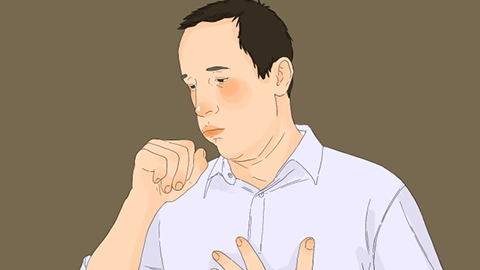What department should I visit for a cough?
Generally, when coughing, one can choose to visit departments such as the Department of Respiratory Medicine, Otolaryngology, Pediatrics, Allergy Department, or Emergency Department, depending on accompanying symptoms and potential causes. Detailed analysis is as follows:

1. Department of Respiratory Medicine: If coughing is accompanied by symptoms such as sputum production, chest tightness, shortness of breath, or fever, it is often related to respiratory diseases such as the common cold, bronchitis, pneumonia, or chronic obstructive pulmonary disease (COPD). In such cases, visiting the Department of Respiratory Medicine is appropriate. Doctors will assess the condition of the respiratory tract through physical examination, routine blood tests, chest X-rays, and other examinations, and then provide targeted treatment.
2. Otolaryngology: If the cough is mainly a irritating dry cough accompanied by symptoms such as throat itching, sore throat, nasal congestion, runny nose, or hoarseness, it may be caused by otolaryngologic conditions such as rhinitis, sinusitis, pharyngitis, or laryngitis, which can lead to postnasal drip syndrome or throat irritation. Visiting the Otolaryngology department can help identify these potential causes.
3. Pediatrics: Children's bodies are not yet fully developed, and their respiratory tracts are relatively delicate. The causes of coughing in children may differ from those in adults, and medication dosages and treatment methods require special consideration. Therefore, when children experience coughing, regardless of the accompanying symptoms, visiting the Pediatrics department is more prudent, enabling doctors to make diagnoses and provide treatment based on children's physiological characteristics.
4. Allergy Department: If coughing frequently occurs after exposure to allergens such as pollen, dust mites, or animal fur, or is accompanied by allergic symptoms such as sneezing, skin itching, or urticaria, it may be allergic cough or cough-variant asthma. Visiting the Allergy Department allows for allergen testing to identify specific allergic factors and formulate an anti-allergy treatment plan.
5. Emergency Department: If coughing starts suddenly and is severe, accompanied by emergency conditions such as difficulty breathing, hemoptysis (coughing up blood), persistent high fever, or chest pain, it may be caused by serious diseases such as pneumothorax, pulmonary embolism, or severe pneumonia. In such cases, immediate visit to the Emergency Department is necessary for urgent evaluation and treatment to prevent further deterioration of the condition.
During the period of coughing, it is recommended to drink plenty of warm water, keep indoor air humidified, avoid exposure to irritants such as smoke and dust, rest adequately, and reduce physical exertion to help alleviate discomfort symptoms.








